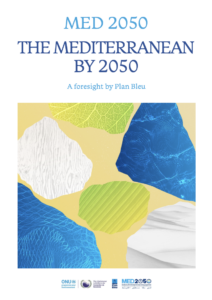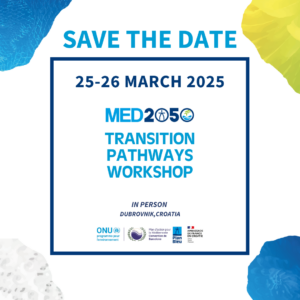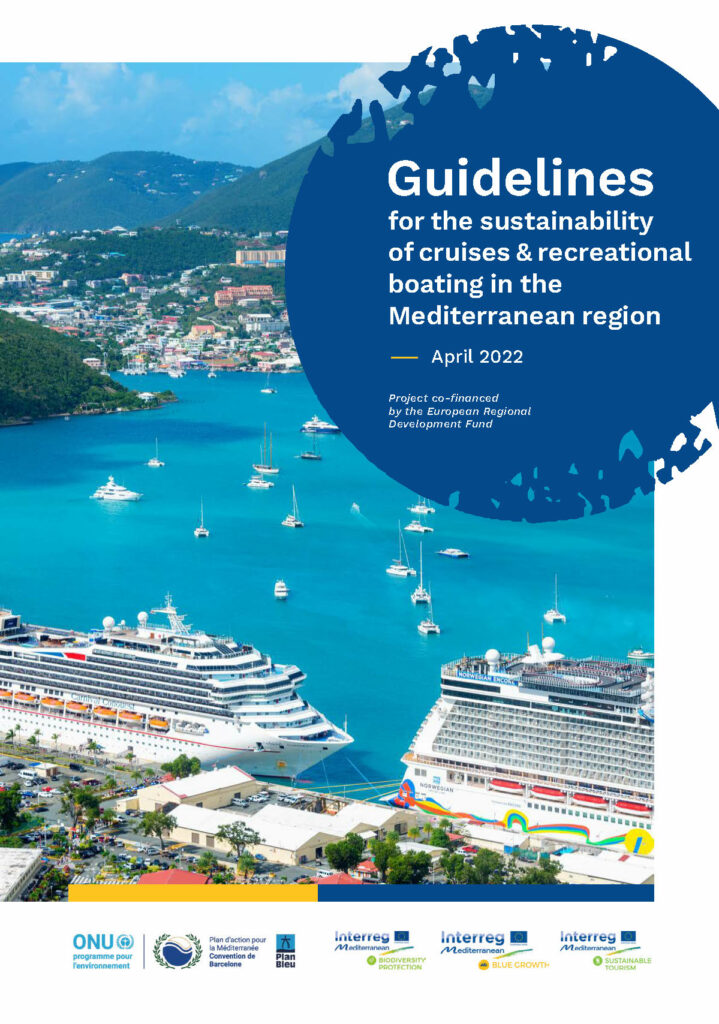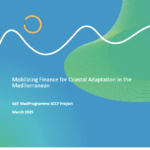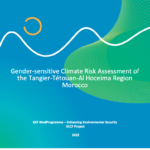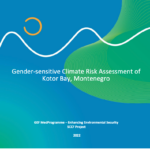Plan Bleu, centre of expertise for development and environment at the service of the countries bordering the Mediterranean Sea, just published its “Guidelines for the sustainability of cruising and recreational boating in the Mediterranean region” on 13 April 2022.
These guidelines aim to provide an analysis of the impacts of the cruise and yachting sector. They also make it possible to establish a report on good practices for sustainable development around this sector. Finally, they provide food for thought for political decision-makers and people competent to legislate and limit pollution in these sectors. Five major challenges
have been identified for these two sectors:
Eliminating atmospheric emissions of pollutants and greenhouse gases;
Safeguarding ecosystems and biodiversity;
Eliminating water pollution (chemical, organic, wastewater effluents), preventing waste generation and improving waste management;
Boosting knowledge and innovation;
Avoiding the impacts of these two sectors on local socio-economic systems.
For each of these challenges, sustainable practices considered as priorities for implementation were selected. Two elements were taken into account: their applicability potential
and potential to significantly reduce environmental impacts. Four case studies illustrate the implementation of the good practices identified by the Guidelines. They include CO2 emissions reductions in the port of Marseille (France), the implementation of a cetacean detection system onboard cruise ships, the “Ports Propres” certification that recognises environmental management in marinas and the zoning of the Portofino Marine Protected Area in Italy. Indeed, numerous positive experiences have been proliferating in the Mediterranean, and are ready to be replicated.
Practices illustrated by the case study:
– Electrification of ships, ports and marinas (including cold ironing for ships stationary in ports);
– Use of Liquefied Natural Gas – LNG (as a transitional fuel) and equipping ports with the related infrastructure;
– Use of solar panels and/or integration of photovoltaic systems into the ports’ and vessels electric grids and systems;
– Tariff reduction for port use for vessels that meet severe environmental quality standards (differentiated port fees);
– Reward/rating systems to facilitate the identification of greener vessels
Charter of commitments to improve the environmental and social sustainability of navigation and port operations.
Main challenges addressed: Eliminating atmospheric emissions of pollutants and greenhouse gases; boosting knowledge and innovation; reducing the impact of cruise ship calls and improving the living environment of local residents.
These high impact measures will support Mediterranean countries in reaching their commitments made in the framework of the European Green Deal, the Sustainable Development Goals ,
the Mediterranean Strategy for Sustainable Development and more recently the new Strategy for a Blue Economy adopted by the European Commission. These measures will also support the recent decision approved at the Mediterranean COP22 in December 2021, which designated the Mediterranean Sea as a Sulphur Emission Control Area (SECA). As of 1st January 2025, vessels crossing the Mediterranean Sea will be required to use low-sulphur fuels with the aim of improving water and air quality in the Mediterranean Sea.
This work was carried out by Plan Bleu in the framework of the Interreg Med program : Blue Growth Community in partnership with two other Interreg communities: the Mediterranean Biodiversity Protection Community and the Sustainable Tourism Community. To draft the Guidelines, a participatory approach was applied through the creation of a multi-stakeholder group which gathered more than 100 Mediterranean stakeholders (representatives of port authorities, cruise activities, local authorities, researchers, nautical industry, environmental associations, tourism observatoriesMarine Protected Area managers). These guidelines proposed by Plan Bleu are intended as much for those involved in the cruise and recreational boating sectors as for port authorities and decision-makers.
For more information on this topic or to access the Guidelines, follow this link or get in touch with Céline Dubreuil. Dr Céline Dubreuil






